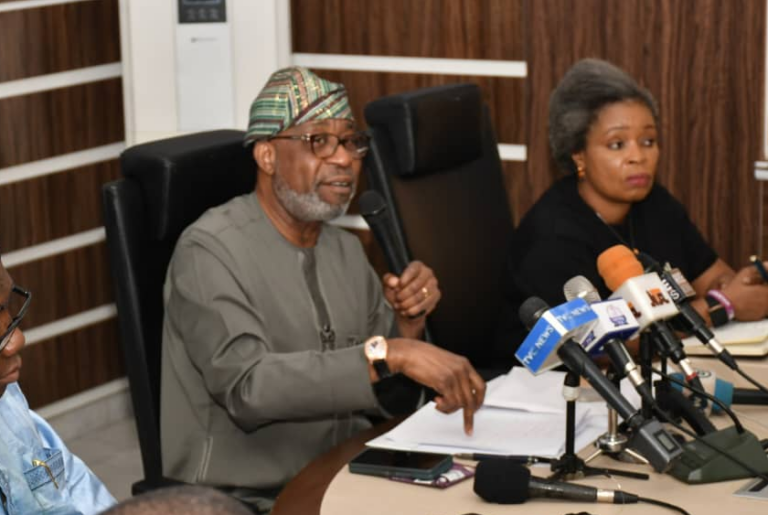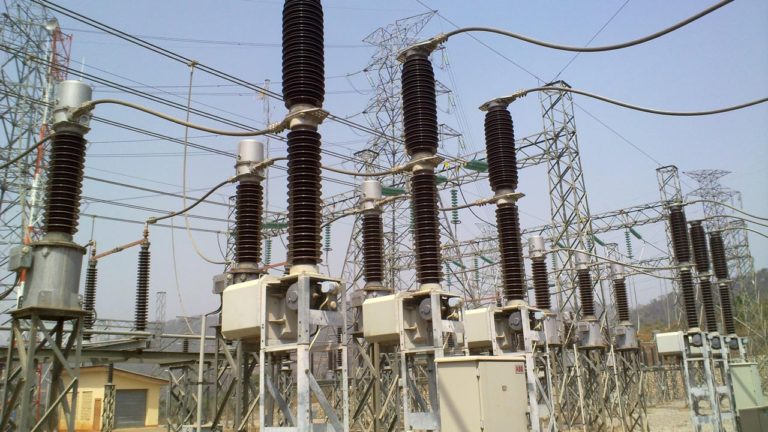The Minister of Power, Works and Housing, Babatunde Raji Fashola, has call for consistency and understanding in the privatized power sector, saying decision to privatize is a matter of policy and policies take time to take effect. “Let’s be consistent here and let us understand that the decision to privatize is a matter of policy.
When policy is made, it takes time to take effect. When it begins to take effect, its impact takes time to spread. And that is why we can share here that five years ago nobody could talk about mini-grid, we are talking about it now; five years ago nobody was talking about Meter Asset Provider, we are talking about it today, five years ago who dared to go into the military formation to meter them; the President has directed that all the military formations must be metered”, the Minister said.
Fashola made the call at the December Nextier Power Dialogue while responding to question posed by a participant bordering on whether or not to cancel the privatization policy and hand back power to the government, Fashola, called for caution, saying, “Let’s be careful what we wish for. We wished, many years ago, after 60 years or so of government run power, we wished and decided that private sector should take over this power. That was our decision. No sooner had we decided, five years after, we are now asking Government to take it from them. Is that what we really want?”
Responding to question concerning the supply of transformers, the Minister reiterated that all the assets that the Ministry of Power used to control for power distribution have been sold by the last administration pointing out that the people now operating the generation and distribution segments of power sector are now privately owned companies.
He said, “I am here because I am concerned. If your telephone is not working, it is not the Minister of Communication that you go to; let us be very clear. My role is regulatory, oversight and policy”, adding, however, “I cannot separate myself from the problem; I am trying to get involved to do what the law allows me to do. So the people you should be talking to about transformer is not me; the Ministry does not supply transformer anymore”.
Fashola said Ministries and Agencies of Government now pay their electricity bills regularly adding, “I just signed the letter for this month because our office is the collection warehouse. This wasn’t happening five years ago. So we are making progress and let no one downplay that”.
“Can we move faster, certainly we can”, he said adding, however, that if the consensus was that Government should take it over the power sector from private hands, then there was need to “go back to Parliament and repeal the law, because I asked you, do you want a five-year old to have a mustache?”
Arguing against the reversal of the Privatization Policy, Fashola, who again reiterated the existence of challenges in the sector which, he assured were being dealt with, declared, “But you must decide in this country whether you want to continue to see devils or angels. I like to see angels, my glass is always half full and problems are opportunities for me to show that nothing is wrong with us and to benchmark what I have achieved. There are problems no doubt and we must deal with them”.
According to the NBS Report for Budget 3, the 3rd Quarter GDP result was 1.81 per cent growth, up from 1.50 per cent in Q2 with Electricity as the biggest motivator scoring 18 per cent.“It is not enough”, Fashola said adding, “But it means we are heading in the right direction back up. What is also important to share is that the growth was driven by non-Oil Sector and that is important because the growth came in a quarter when oil prices have not done well and that is what this team set out to achieve; to diversify the economy. We welcome the Oil money, but when the oil money suddenly disappears, our prosperity will not go with it and that is important”.
The Minister added, “So, in a period when oil prices began to flounder Nigeria’s economy did not flounder and that is important. But more importantly, who drove the growth? It means that if we continue with the foundations that are being laid-infrastructure- the jobs that all of us want to see will multiply. That is where we are”.








